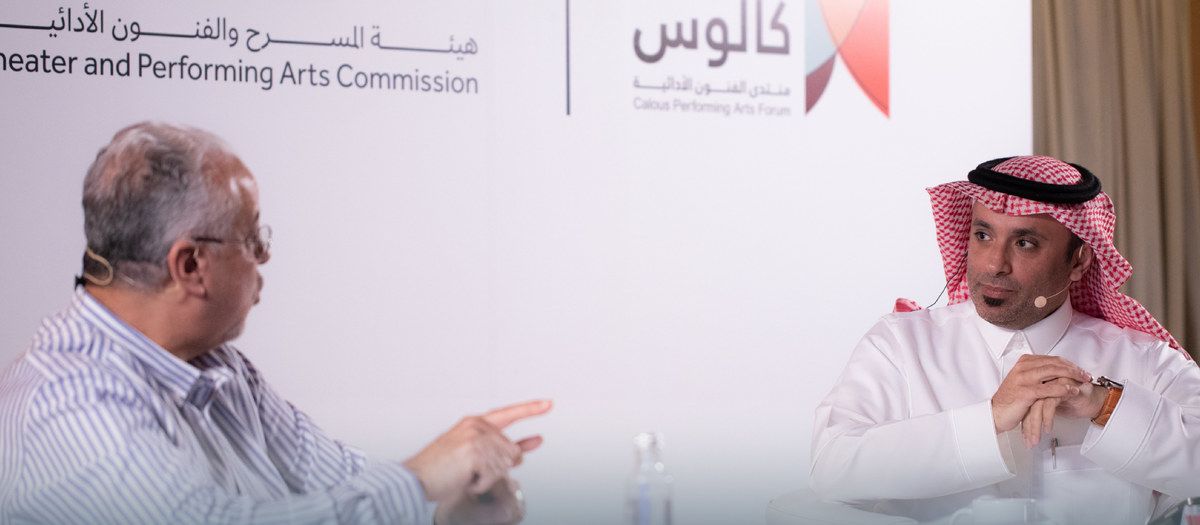
Experts discuss art of dramaturgy
The event, titled “The Importance of Dramaturgy in Theatrical Performance,” was held as part of the Calous Performing Arts Forum.
The participants included Egyptian theater director and actor Sobhi Youssef and Syrian playwright Dr. Abdullah Al-Kafri. The discussion was moderated by Dr. Ali Al-Nahabi, a Saudi assistant professor at Imam Mohammad ibn Saud Islamic University.
The event focused on the definition of dramaturgy, its history in theater and its role in enriching theatrical performances.
 The discussion was moderated by Dr. Ali Al-Nahabi, a Saudi assistant professor at Imam Mohammad ibn Saud Islamic University.
The discussion was moderated by Dr. Ali Al-Nahabi, a Saudi assistant professor at Imam Mohammad ibn Saud Islamic University.
Youssef said “the specialty of dramaturgy” had existed since the beginning of theater 3,000 years ago and that playwrights used poetry to improve performance through visualization and distributing responsibilities.
He said the essence of a dramaturg’s specialization was helping to deliver creative ideas to the audience, both physically and intellectually, by acting as an intelligent critic of all elements of the theatrical production.
“It is not possible to generalize that all theatrical works need dramaturgs. While at the same time, it is not a requirement that this specialization is only for major artworks, as some simple performances, such as monodrama, may require a specialist in dramaturgy, due to the depth of the idea,” Youssef said.
“There are characteristics that need to be available in the character of the dramaturg, such as being familiar with all elements of theater and directing … to fill all gaps in the work and to ensure that the recipient comprehends the idea.”
Al-Kafri said that one of the most important roles of the dramaturg was to answer “questions of meaning,” which he explained as the attempt to ask troubling questions of the director, author and actors.
In recent years the Arab theater world had witnessed an emergence of dramaturgy, he said.
“The work that starts with an idea, then a written script, which will transform into a play and an artistic art piece, requires the team to collaborate with an expert to coordinate those aspects harmoniously and smoothly.”










